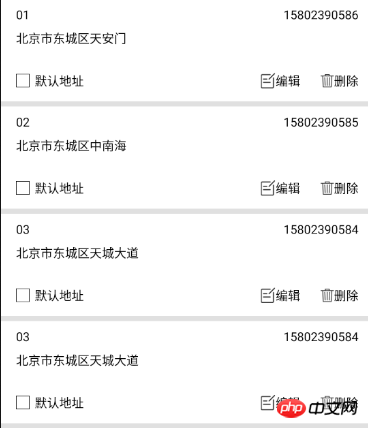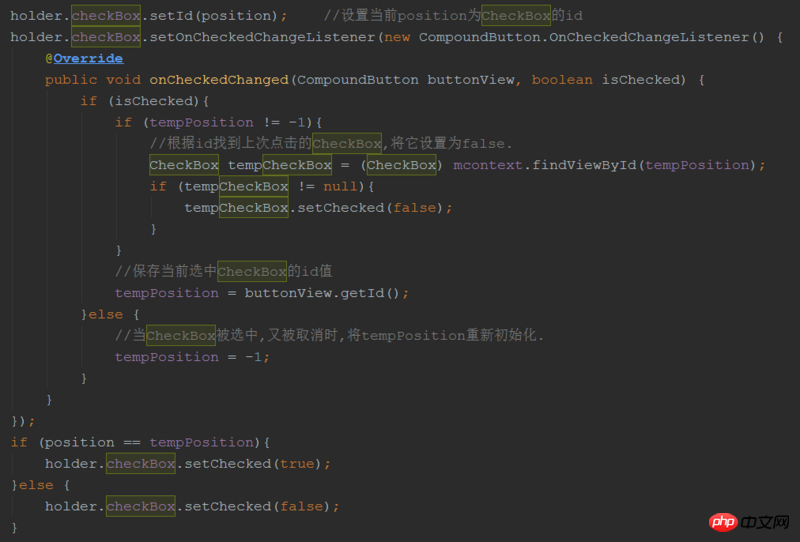Now the background returns a value of whether the default address is int Isdefault = bean.getDefault_address();

How to implement checkbox switching?
为情所困2017-05-16 13:31:21
You can write like this with minimal changes to your code. First find the address selected by default
int defaultPosition = -1;
for (int i = 0; i < beanlist.size(); i++) {
if(beanlist.get(i).getDefault_address()){
defaultPosition = i;
break;
}
}Two situations:
After selecting another address and then canceling it, the default address will be re-selected
if(tempPosition > -1){
if(position == tempPosition){
holder.checkBox.setChecked(true);
}else{
holder.checkBox.setChecked(false);
}
}else{
if(position == defaultPosition){
holder.checkBox.setChecked(true);
}else{
holder.checkBox.setChecked(false);
}
}Once you select another address, the default option will no longer work
tempPosition = defaultPosition;
if(position == tempPosition){
holder.checkBox.setChecked(true);
}else{
holder.checkBox.setChecked(false);
}淡淡烟草味2017-05-16 13:31:21
It is easier to create an array to maintain the status of checkBox.
When CheckBox receives a click event, change the status of the corresponding checkBox in statusList, and at the same time set the status of checkBox according to the value of statusList in the onBindView/getView method.
---------------------Separating line------------------------- -------------------------------------------------- ------
I didn’t see that it requires single selection. . For single selection, you need to add a flag to record the last selected position, then get the object from the adapter, and modify the checkStatus if it is visible.